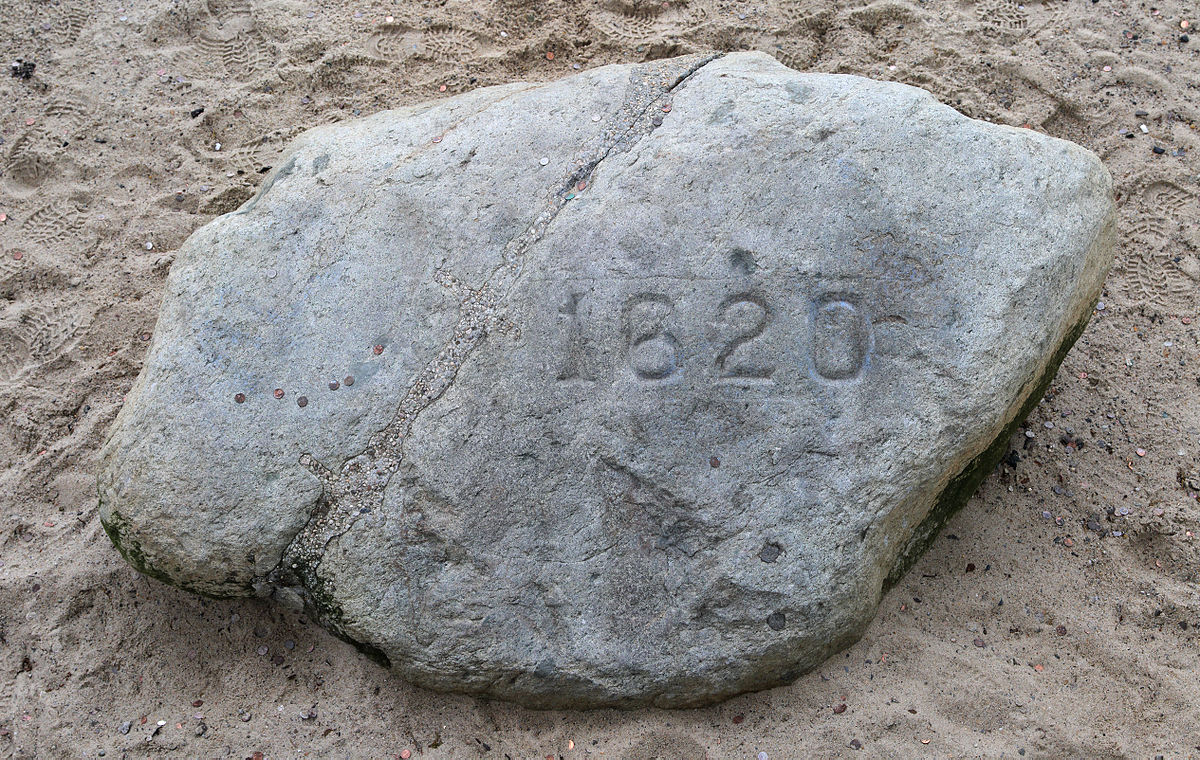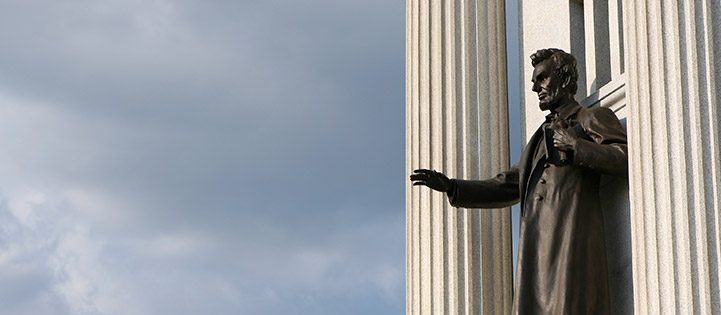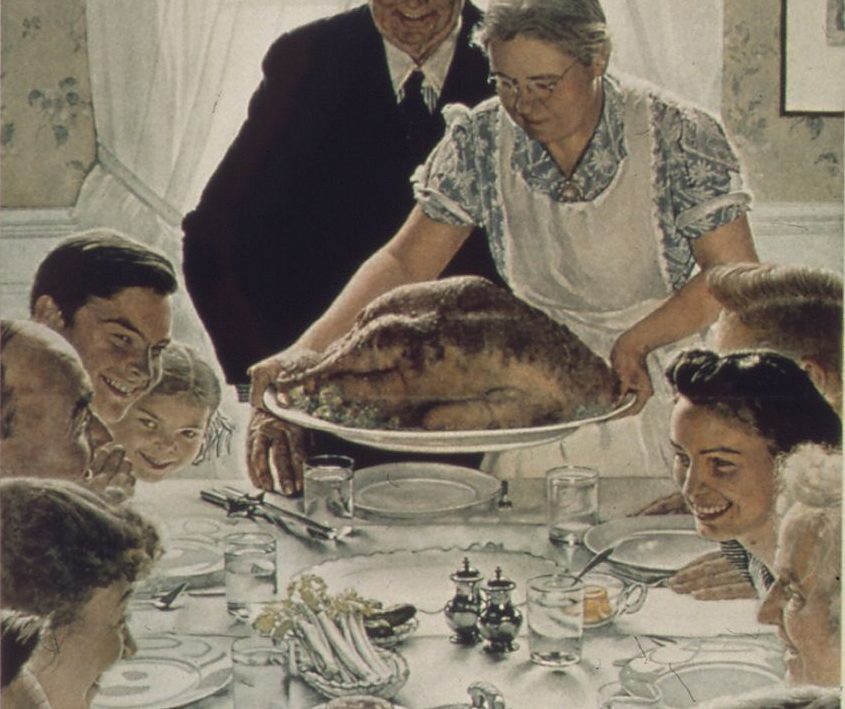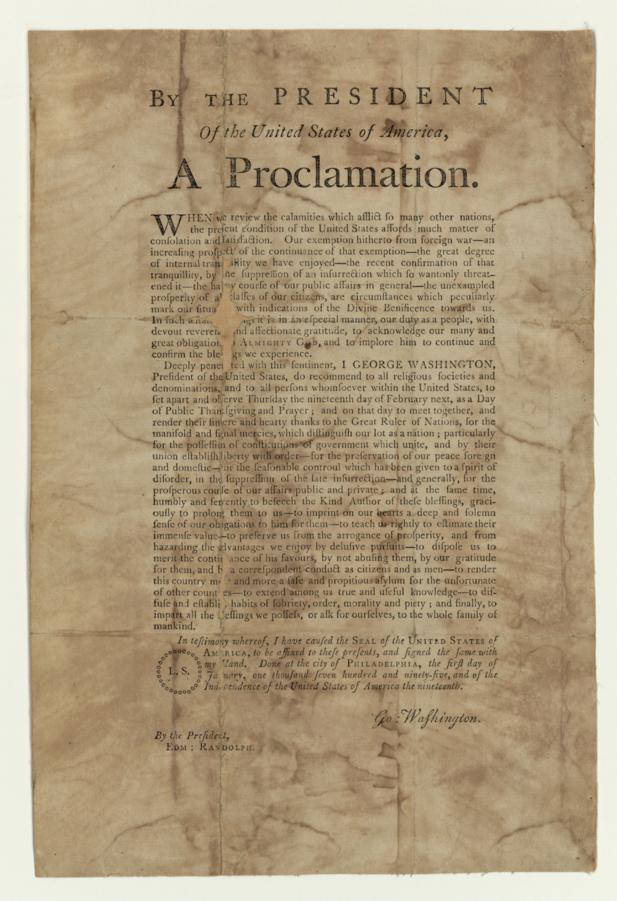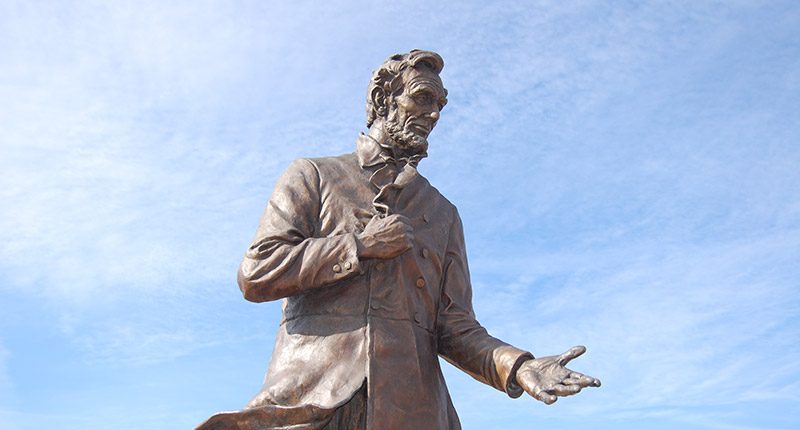Thanksgiving Wasn't Always a Source of National Unity.
On Natural Piety: God, Family, Country

Just as it belongs to religion to give worship to God, so does it belong to piety to give worship to one's parents and one's country.
Over seven centuries ago, Thomas Aquinas summed up what western civilization understood to be the natural debt of gratitude all human beings owe to God, family, and country.
“Man becomes a debtor to other men in various ways, according to their various excellence and the various benefits received from them . . . the principles of our being and government are our parents and our country, that have given us birth and nourishment. Consequently man is debtor chiefly to his parents and his country, after God. Wherefore just as it belongs to religion to give worship to God, so does it belong to piety, in the second place, to give worship to one’s parents and one’s country.”
As is abundantly clear from the rest of the articles in this week’s feature, the American founding generation understood what these words meant. Immersed in a culture of distractive decay, and systematically miseducated to reflexively deconstruct purpose and deny principle, we find their meaning much harder to understand.
The premise is that we all owe debts based on what we have freely received. The “principles of our being and government,” or that from and out of which our very lives and way of life arise and exist, are our parents and our country. The form of government in which we are born, no less than our parents, give us our existence and allow us to maintain it, all while shaping our character, or who we are and can become.
Thus the extent to which we are all debtors to the Founders is hard to fathom. Nearly every earthly good we possess—and thanks to their notion of religious freedom, nearly every spiritual good as well—is in some way ours by means of and within the regime the Founders wrought.
All the ironic and increasingly vitriolic sentiments one reads on national holidays ridiculing our nation’s (often very real) flaws are very much like ridiculing or pointing out your Mother’s faults on Mother’s Day, or saying you can’t quite celebrate Valentine’s day with your significant other on account of her imperfections, which you proceed to list. And then telling everyone else that they are making idols of their Mother or beloved because they celebrate these days without such childish impudence.
We are not usually able to directly repay, nor even fully understand, the breadth nor depth of what we have received from those who have nourished and taught us, never mind those who in some real way have sacrificed for us, sometimes to the point of death. We are often left with the attempt to give what we received from those who cared for us to those under our own care. This form of giving is often the only way open to us to pay our debts in this life. It also why gratitude entails giving and receiving properly. We learn and can actually grow in generosity by receiving it.
As Aquinas also says, citing Aristotle, “The Philosopher says (Ethic. v, 5): ‘We should repay those who are gracious to us, by being gracious to them in return,’ and this is done by repaying more than we have received. Therefore gratitude should incline to do something greater.”
With sincerity and without irony, let us give gratitude today to what and whom it is due in our lives without apology or qualification. May we “incline to do something greater.”
Happy Thanksgiving.
The American Mind presents a range of perspectives. Views are writers’ own and do not necessarily represent those of The Claremont Institute.
The American Mind is a publication of the Claremont Institute, a non-profit 501(c)(3) organization, dedicated to restoring the principles of the American Founding to their rightful, preeminent authority in our national life. Interested in supporting our work? Gifts to the Claremont Institute are tax-deductible.
How Abraham Lincoln created Thanksgiving.
Thanksgiving remains one of our few unifying traditions.
We should be thankful for the sheer wonder of being.
The Genuinely American Debate over Federalism and Thanksgiving.
Allen Guelzo, Richard Brookhiser, Joseph Bottum, and Justin Dyer on the thought and action of Lincoln's Thanksgiving and his wrestling with God.

